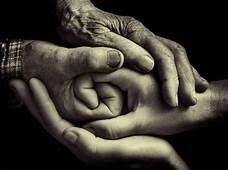Lenten Devotion – Sat, Mar 13: MERCY
Reciprocity is once more at the heart of this blessing. We are the people who have witnessed and responded to others’ pain, hurt, and suffering. In turn, we are the ones who need — and hopefully receive — compassion and kindness. It’s easier to be on the giving end of this blessing, than on the […]




